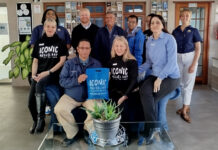AGRI SA’s Executive Director Christo van der Rheede has written to Eskom CEO Andre de Ruyter requesting an urgent engagement on the outlook for loadshedding in the coming weeks. With loadshedding escalating as South Africa enters the summer crop planting season, the current energy crisis may have implications for food security into the coming year unless farmers can put measures in place to mitigate against the effects of loadshedding.
Electricity is a key agricultural input. According to the Department of Agriculture, Land Reform and Rural Development (DALRRD) statistics, the agricultural sector spent approximately R9 billion on electricity in 2021. This is more than 7% of the sector’s expenditure on intermediate goods and services. A reliable power supply is especially critical for the sector’s irrigation and water treatment.
The consequences of loadshedding for the different agricultural commodities are far-reaching, with potentially devastating outcomes. Moreover, the impact of loadshedding extends beyond the blackout.
It usually takes up to an hour to resume irrigation systems when loadshedding ends, costing farmers time and incurring additional labour costs. Blackouts also disrupt cooling and packing with ramifications for food quality, and they pose a health hazard for humans and animals alike as they disrupt access to clean water for consumption and stop wastewater treatment.
For export commodities, the consequences include a disruption to cold chain protocols mandated by foreign markets and late shipments. These outcomes will diminish South Africa’s standing as a reliable source market.
Ultimately, the greatest threat of loadshedding is to the country’s food security. As crops fail due to the lack of irrigation or farmers plant less for fear of losses, the country will only experience the consequences of loadshedding in the future as the produce anticipated from this summer’s crop fails to materialise. The result will be food shortages and high prices.
Agri SA is aware of the recent announcement that Eskom will approach the market to procure 1 000MW, but farmers need to know what the plan is beyond this initial attempt to stabilise the grid in order to plan for the season ahead.
Given the magnitude of what’s at stake, Agri SA has approached Eskom for engagement in order to understand the current challenges and gain some insight into the outlook for the year so the sector can make plans to mitigate the risks, protecting both food consumers and producers. We trust that the power utility and government will work with us to avert a food certainty crisis in addition to the ongoing power crisis.















